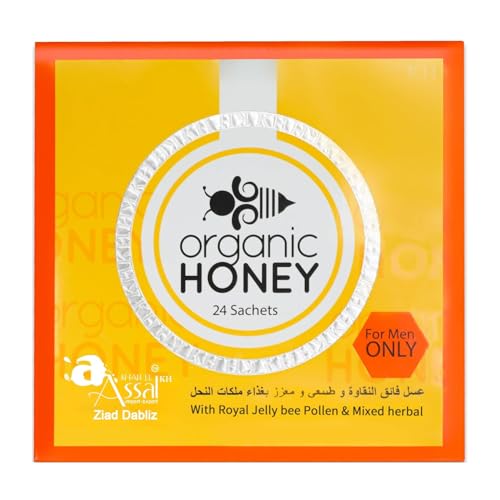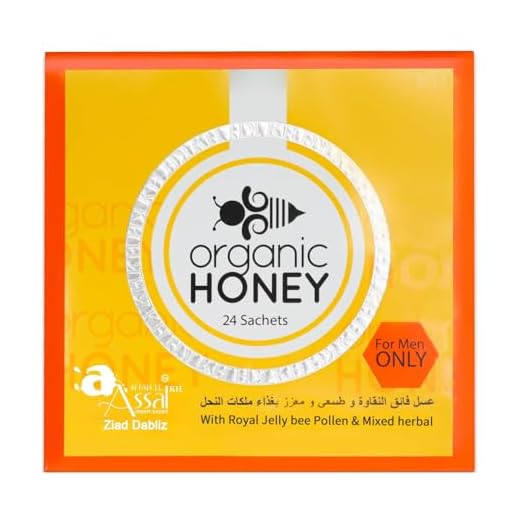

Honey is a natural sweetener that has been used for centuries in various culinary dishes and beverages. It is known for its unique flavor and numerous health benefits. However, there is some debate about whether cooking honey is bad or not.
When honey is exposed to high temperatures during cooking, it undergoes a chemical change. The heat can break down the natural enzymes and antioxidants present in honey, reducing its nutritional value. In addition, some studies suggest that heating honey can produce certain compounds that may be harmful to health.
However, it’s important to note that the impact of cooking honey depends on the temperature and duration of heat exposure. Mild heat, such as that used in baking or cooking at low temperatures, may not significantly alter the honey’s properties. On the other hand, boiling or prolonged heating can lead to a loss of flavor, aroma, and beneficial compounds.
Therefore, if you want to retain the full nutritional benefits and unique taste of honey, it is best to consume it raw or lightly heated. Adding honey to hot beverages like tea or drizzling it over warm foods like oatmeal is a great way to enjoy its natural goodness without compromising its quality.
Is Cooking Honey Bad for You?
Honey is a natural sweetener that is often used in cooking and baking. It has a rich, unique flavor and is considered a healthier alternative to processed sugar. However, when it comes to cooking honey, there are some concerns about its safety and health benefits.
Heating honey can cause certain chemical changes in its composition. The high temperatures can break down some of the natural enzymes, antioxidants, and other beneficial compounds present in honey. This can reduce its nutritional value and health benefits.
One of the main concerns when cooking honey is the formation of hydroxymethylfurfural (HMF). This compound is produced when honey is exposed to heat and can be toxic in high amounts.
Excessive cooking can also lead to caramelization of honey, which can result in the formation of compounds called advanced glycation end products (AGEs). These compounds have been linked to various diseases, including diabetes and heart disease.
However, it’s important to note that the negative effects of cooking honey are generally only significant when exposed to high temperatures for extended periods of time. Light cooking or using honey as a sweetener in recipes is unlikely to cause any harm.
If you want to preserve the health benefits of honey, it is best to use it in its raw, unheated form. This way, you can enjoy its natural flavors and reap the maximum benefits of its enzymes and antioxidants.
In conclusion, cooking honey can reduce its nutritional value and may lead to the formation of potentially harmful compounds. It is best to consume honey in its raw form to fully enjoy its health benefits. However, moderate cooking or using honey as a sweetener in recipes is generally safe and unlikely to cause any significant harm.
The Science Behind Cooking Honey
When it comes to cooking honey, many people wonder if it is bad for the health benefits and taste of the sweet golden liquid. To understand the science behind cooking honey, it is important to examine its composition and how heat affects it.
Honey is a natural sweetener derived from the nectar of flowers. It is composed of various sugars, including fructose and glucose, as well as trace amounts of vitamins, minerals, and antioxidants. The unique combination of sugars gives honey its distinct flavor and viscosity.
When honey is heated, its composition undergoes several changes. Firstly, the heat causes the sugars in honey to break down, resulting in caramelization and darkening of the color. This process alters the flavor profile, giving the honey a richer and more intense taste.
Secondly, high temperatures can also affect the nutritional content of honey. Some heat-sensitive antioxidants, enzymes, and vitamins may be destroyed or denatured during the cooking process. However, the exact extent of nutrient loss can vary depending on the temperature and duration of cooking.
| Effect of Cooking on Honey | Impact |
|---|---|
| Caramelization | Enhanced flavor and color |
| Nutrient Loss | Possible degradation of antioxidants, enzymes, and vitamins |
| Antibacterial Properties | Reduced effectiveness |
It is important to note that heating honey above its boiling point (approximately 180°F or 82°C) can have a detrimental effect on its antibacterial properties. Honey naturally contains hydrogen peroxide and other substances that give it antimicrobial properties. However, excessive heat can degrade these compounds, reducing their effectiveness.
In summary, cooking honey can alter its flavor, color, and nutritional content. While some prefer the enhanced taste of cooked honey, it is important to balance the desire for flavor with the potential loss of nutrients. Moreover, if the antibacterial properties of honey are a primary concern, it is best to consume it raw to maximize its health benefits.
Nutritional Value of Raw Honey
Raw honey is a natural sweetener that has been used for centuries as a food and medicine. It is made by bees from the nectar of flowers and contains a wide range of nutrients that can benefit your health.
Here is the nutritional value of raw honey per 100 grams:
| Nutrient | Amount |
|---|---|
| Calories | 304 |
| Carbohydrates | 82 grams |
| Protein | 0.3 grams |
| Fat | 0 grams |
| Fiber | 0.2 grams |
| Calcium | 6 milligrams |
| Potassium | 52 milligrams |
| Iron | 0.42 milligrams |
| Vitamin C | 0.5 milligrams |
Raw honey also contains various enzymes, antioxidants, and trace amounts of vitamins and minerals. It is a natural source of energy and can be a healthier alternative to processed sugar.
However, it’s important to note that honey should not be given to infants under the age of one year due to the risk of botulism. It is also high in calories and should be consumed in moderation as part of a balanced diet.
Overall, raw honey is a nutritious and delicious ingredient that can be enjoyed in a variety of ways, from adding it to tea or oatmeal to using it in baking recipes.
Effects of Heating on Honey’s Enzymes
Heating honey can have an impact on its enzymes, which are responsible for many of the beneficial properties of honey.
Enzymes are biological molecules that act as catalysts in various biochemical reactions. In honey, enzymes play a crucial role in converting nectar into honey and maintaining its unique composition.
When honey is heated, especially at high temperatures, the enzymes present in the honey can be denatured or destroyed. Heat can cause the proteins that make up the enzymes to unfold and lose their functional structure, rendering them ineffective.
This loss of enzymatic activity can have implications for the nutritional value and potential health benefits of honey. Enzymes in honey, such as diastase and invertase, contribute to its antibacterial properties, antioxidant activity, and ability to support digestion.
However, it’s worth noting that heating honey to a moderate temperature, such as when used in cooking or baking, may not entirely eliminate all of its enzymes. While some enzymes may be inactivated, others may remain intact or partially functional.
It’s important to consider that honey is often heated during the processing and packaging stages to improve its clarity and extend its shelf life. These heating processes can vary in intensity and duration, affecting the degree to which the enzymes are affected.
In conclusion, while heating honey can impact its enzymes and potentially reduce some of its beneficial properties, the exact extent of this effect depends on the temperature and duration of heating. Moderation in heat exposure is key to preserving the enzymatic activity and maximizing the potential health benefits of honey.
Potential Health Benefits of Cooked Honey
There is some debate about whether cooking honey affects its nutritional properties. However, studies have shown that cooked honey can still provide several potential health benefits:
1. Improved Digestion: Heating honey can help break down complex sugars, making it easier for the body to digest. This can be especially beneficial for individuals with digestive issues.
2. Antibacterial Properties: Cooked honey retains its antibacterial properties, which can help combat harmful bacteria in the body. It has been used for centuries as a natural remedy for wound healing and preventing infections.
3. Soothing Sore Throat: Warm honey can provide relief for a sore throat and cough due to its soothing properties. Mixing it with lemon juice or herbal tea can provide additional benefits for respiratory health.
4. Antioxidant Content: While cooking honey might reduce its antioxidant content slightly, it still contains antioxidants that can help neutralize harmful free radicals in the body, reducing the risk of chronic diseases.
5. Energy Boost: Cooked honey is a source of natural sugars, which can provide a quick energy boost. It can be ideal for athletes or individuals needing an immediate energy source.
It’s important to note that excessive heat exposure or prolonged cooking can destroy some of the beneficial compounds in honey. Thus, it’s recommended to consume raw honey whenever possible to fully reap its nutritional benefits. However, incorporating cooked honey in recipes or using it as a natural sweetener can still offer some health advantages.
If you have any concerns or specific health conditions, it’s best to consult with a healthcare professional before incorporating cooked honey into your diet.
FAQ
What happens if you cook honey?
When honey is cooked, its natural enzymes and antioxidants can be destroyed, resulting in a loss of some of its health benefits.
Can you cook with honey?
Yes, you can cook with honey. Just keep in mind that honey can burn easily due to its high sugar content, so use lower heat and shorter cooking times when using it in recipes.
Does cooking honey make it toxic?
No, cooking honey does not make it toxic. However, excessive heating can denature the beneficial enzymes and antioxidants present in honey, reducing its health benefits.
What is the best way to use honey in cooking?
The best way to use honey in cooking is to add it towards the end of the cooking process, or use it as a glaze or sweetener in recipes that require minimal heat. This will help preserve its natural nutrients and flavor.







